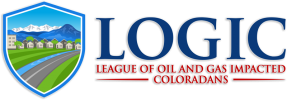AQCC Sign on Letter
October 19, 2017
The Colorado Air Quality Control Commission
Colorado Department of Public Health and Environment
4300 Cherry Creek Drive South
Denver, CO
To Whom It May Concern:
Colorado families shouldn’t have to wonder whether the air they are breathing is safe. We are concerned that the State is in non-attainment even for 20-year old ozone standards and that the second largest contributor to that pollution comes from oil and gas. We are concerned that on the Front Range, “eight of the ten fastest growing towns and cities in the state and two of the fastest-growing counties, Broomfield and Weld are in the direct path of drilling,” and that the pace of Front Range oil and gas development threatens to undo the progress Colorado has made in attempting to control volatile organic compound emissions.
This rulemaking by the Air Quality Control Commission is a great step forward, and adopting this proposed set of regulations is a great start in protecting Colorado’s Front Range families. Much of the oil and gas development – both older wells and new wells – is occurring in neighborhoods and near homes. It is imperative that we continue to assess and ensure the health and safety of Colorado families through greater air quality controls and inspections.
Over the last year, leaks and equipment failures have led to tragic and concerning consequences. Just last month, a compressor valve failed at a site in Greeley. The high-pressure gas leak forced the evacuation of the Greeley District 6 Northridge High School stadium during a football game. According to a Greeley Tribune article about the incident, “Craig Rasmuson, an executive for SRC energy, who owns the wells and tanks, said a compressor valve failed, and frankly, that happens regularly in the field.” A 2015 report found that more than 51,000 children are attending schools or day care centers within a half-mile of oil and gas wells. Protecting the health and safety of Colorado families and Colorado kids, through stronger inspection programs and by requiring the best available pneumatic devices (or emission control devices) is a critical first step.
Increased leak detection and repair (LDAR) and tighter controls on pneumatic devices are a win for Coloradans and will benefit families living near proposed and existing wells by preventing toxics and known carcinogens like benzene from being emitted into nearby communities. We hope that the proposed stakeholder process moves forward to continue to address Colorado’s air quality and to keep it healthy for Colorado families. It is critical that our state take seriously the health implications of emissions coming from oil and gas facilities.
Please adopt the proposed rules to protect the health and safety of Colorado families.
Thank You,
